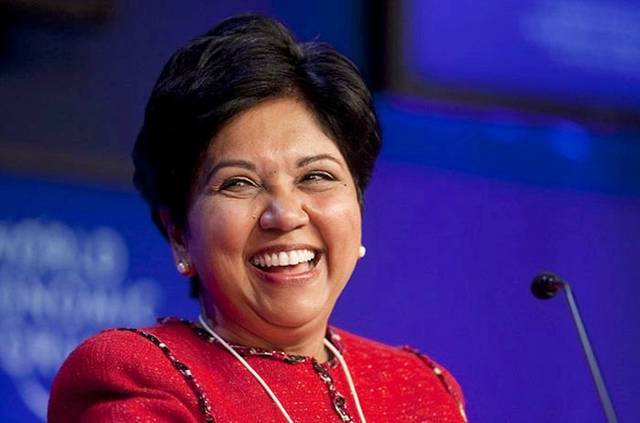LOS ANGELES — A new report on Net Neutrality has uncovered some ISPs’ systematic degradation of performance across certain popular types of network traffic.
“The Health Status of Net Neutrality —The Operators’ Impact on Internet Traffic,” was commissioned by The Internet Infrastructure Foundation to examine how Swedish fixed and mobile Internet Service Providers (ISPs) actively regulate traffic traversing their networks and finds that mobile broadband users in particular may be disappointed.
The Internet Infrastructure Foundation is an independent organization tasked with managing Sweden’s top level domain (.SE), as well as its national domain name registry. Sweden also offers some of the worlds’ fastest fixed and mobile Internet access; is home to the notorious PirateBay — and is at the forefront of anti-piracy legislation initiatives.
One of the reports key findings is that while some ISPs throttle BitTorrent transfers, others are completely blocking them.
According to Wikipedia, BitTorrent is a peer-to-peer file sharing protocol used for distributing large amounts of data over the Internet and is one of the most common protocols for transferring large files, with estimates that it accounts for up to 70 percent of all Internet traffic; consumes more bandwidth than Netflix and Hulu combined; and boasts more active users at any given moment than YouTube and Facebook combined.
The report analyzes tests conducted by The Internet Infrastructure Foundation on a dozen ISPs, comparing three common types of network traffic: standard web browsing, file-sharing and viewing videos, such as those from YouTube.
“What is evident from the measurement results is that some mobile operators systematically downgrade user traffic such as the file-sharing protocol BitTorrent,” states report test administrator, Jörgen Eriksson. “If an operator attempts to limit these protocols and the operator’s customers know that their Internet connection does not give them full access to this type of service the operator will lose customers.”
The report finds that BitTorrent throttling is a poor idea, as many Open Source and other applications depend upon the popular peer-to-peer (P2P) protocol, such as Skype.
The report also notes a lack of transparency when it comes to public information on if and what services an ISP is restricting.
“The most interesting conclusion is that it is very difficult, if at all possible, to find information among operators about what they block or prioritize,” says Eriksson, adding, “We know that mobile market players see it as an advantage to NOT be compared with others. There is thus a risk that even if the technical information is presented, it will be useless for those who do not have a deep understanding of how the Internet is built.”
Report results obfuscated the identities of the tested ISPs, allowing them to revisit their policies before a more comprehensive report is issued.
“If peer-to-peer protocols are blocked the trend will go toward developing protocols according to the traditional server-client model, or data will be hidden in other traffic where it is difficult to discern,” the report concludes. “It will probably not be as effective and lead to an increase in traffic — rather than the decrease as ISPs seek when they block peer-to-peer protocols.”
The upcoming XBIZ LA Digital Media Conference will feature a presentation by website traffic expert Brad Gosse on unique methods by which adult content marketers may leverage BitTorrent for promotional purposes.
“The Health Status of Net Neutrality —The Operators’ Impact on Internet Traffic,” was commissioned by The Internet Infrastructure Foundation to examine how Swedish fixed and mobile Internet Service Providers (ISPs) actively regulate traffic traversing their networks and finds that mobile broadband users in particular may be disappointed.
The Internet Infrastructure Foundation is an independent organization tasked with managing Sweden’s top level domain (.SE), as well as its national domain name registry. Sweden also offers some of the worlds’ fastest fixed and mobile Internet access; is home to the notorious PirateBay — and is at the forefront of anti-piracy legislation initiatives.
One of the reports key findings is that while some ISPs throttle BitTorrent transfers, others are completely blocking them.
According to Wikipedia, BitTorrent is a peer-to-peer file sharing protocol used for distributing large amounts of data over the Internet and is one of the most common protocols for transferring large files, with estimates that it accounts for up to 70 percent of all Internet traffic; consumes more bandwidth than Netflix and Hulu combined; and boasts more active users at any given moment than YouTube and Facebook combined.
The report analyzes tests conducted by The Internet Infrastructure Foundation on a dozen ISPs, comparing three common types of network traffic: standard web browsing, file-sharing and viewing videos, such as those from YouTube.
“What is evident from the measurement results is that some mobile operators systematically downgrade user traffic such as the file-sharing protocol BitTorrent,” states report test administrator, Jörgen Eriksson. “If an operator attempts to limit these protocols and the operator’s customers know that their Internet connection does not give them full access to this type of service the operator will lose customers.”
The report finds that BitTorrent throttling is a poor idea, as many Open Source and other applications depend upon the popular peer-to-peer (P2P) protocol, such as Skype.
The report also notes a lack of transparency when it comes to public information on if and what services an ISP is restricting.
“The most interesting conclusion is that it is very difficult, if at all possible, to find information among operators about what they block or prioritize,” says Eriksson, adding, “We know that mobile market players see it as an advantage to NOT be compared with others. There is thus a risk that even if the technical information is presented, it will be useless for those who do not have a deep understanding of how the Internet is built.”
Report results obfuscated the identities of the tested ISPs, allowing them to revisit their policies before a more comprehensive report is issued.
“If peer-to-peer protocols are blocked the trend will go toward developing protocols according to the traditional server-client model, or data will be hidden in other traffic where it is difficult to discern,” the report concludes. “It will probably not be as effective and lead to an increase in traffic — rather than the decrease as ISPs seek when they block peer-to-peer protocols.”
The upcoming XBIZ LA Digital Media Conference will feature a presentation by website traffic expert Brad Gosse on unique methods by which adult content marketers may leverage BitTorrent for promotional purposes.














































![Bill Gate Car [www.ritemail.blogspot.com]](https://blogger.googleusercontent.com/img/b/R29vZ2xl/AVvXsEivL5ZTqZ20TbOffIPtOweQkevgEkfDfhxFADFzR5zEcCHUgbp_eGI-vxm4LDz8GixMhCXPLTy_yAy3knUXq4OybBh6o1Qp4AW8qY5I0P-9rXGAXIdaIcvZ1k961_67XLb1iUq5s_hgdpAZ/s640/bill+gates+car.jpg)
![Bill Gate Office Reception [www.ritemail.blogspot.com]](https://blogger.googleusercontent.com/img/b/R29vZ2xl/AVvXsEi7buhJU5H1aXuMsvWkdHZRrMnabcUbOfUasWfmO2bASS4G6gnhF8BAYO8wLY9O5ZDDRyAsZSOxvCZUdzYIUH2FhmM4Mg0rRGO3dPIJtMUzHNSBP0g9iWRjBKraU90I94SLVyl6f0tH6F5Z/s640/bill+gates+reception.jpg)
